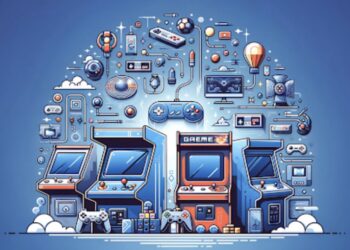In the digital age, the term ‘social network’ has come to be associated almost exclusively with platforms like Facebook, Twitter, and Instagram. However, gaming, especially in its online manifestations like tonybet.com/is, has emerged as a potent and diverse social networking medium. This article explores the complex, rich, and vibrant social ecosystems that thrive within virtual gaming worlds, arguing that these environments are not mere idle escapes but are profound social networks in their own right.
The Evolution of Gaming as a Social Network
Gaming has evolved significantly since its inception, shifting from a predominantly single-player experience to a highly interactive, social activity. Multiplayer Online Battle Arenas (MOBAs), Massively Multiplayer Online Games (MMOs), and various other multiplayer formats have become commonplace, enabling players to interact in real time across the globe.
Early Beginnings
The transformation began with early internet forums and chat rooms in the 1990s, where players would discuss strategies and form friendships. These forums were the precursor to the integrated, expansive, and interactive communities we see in today’s games.
MMOs: The Pioneers
Games like ‘World of Warcraft’ and ‘EverQuest’ demonstrated the potential for games to serve as social platforms, boasting millions of players who regularly interact, form guilds, and establish long-lasting friendships.
Social Dynamics within Virtual Worlds
Gaming worlds are often rich and complex, with their own economies, politics, and social norms. They mirror many aspects of our own societies, offering players opportunities for meaningful interaction.
Building Friendships and Relationships
Many players have formed deep and meaningful relationships within games—some even leading to marriages. Gaming serves as a platform for people to connect over shared interests, facilitating bonds that extend beyond the digital realm.
Collaborative Play
From ‘Fortnite’ to ‘Overwatch,’ games increasingly require players to work as a team.
This collaborative play fosters a sense of community and belonging, as players must communicate and strategize together.
Networking Opportunities and Professional Relationships
Gaming isn’t just for fun—it’s also becoming a significant networking tool. People are finding job opportunities, business partners, and clients through their gaming connections.
Esports and Industry Connections
Esports has emerged as a major industry, with its own ecosystem of players, coaches, analysts, and sponsors. It is a space where networking can lead to substantial career opportunities.
Addressing Toxicity and Building Positive Communities
With the growth of gaming communities, toxicity and harassment have unfortunately followed. Developers and community managers are working hard to foster positive, inclusive environments.
Tools and Moderation
Modern games are equipped with reporting tools and active moderation teams. These mechanisms are designed to combat harassment and ensure that communities remain welcoming.
Community-led Initiatives
In addition to developer tools, player communities often take it upon themselves to create a positive culture, forming groups that promote kindness and inclusivity.
Educational and Therapeutic Use of Gaming Communities
Video games are increasingly being used as tools for education and therapy. They provide safe, controlled environments where individuals can practice social interaction, problem-solving, and other critical skills.
Games in the Classroom
Educators are incorporating games like ‘Minecraft’ into their curriculums to teach everything from history to computer science, encouraging collaborative learning in a virtual space.
Therapeutic Gaming
For people with social anxiety or other conditions, gaming can be a therapeutic way to engage in social interaction on their own terms.
The Future of Gaming as a Social Network
As technology continues to evolve, so will the social aspects of gaming.
Virtual Reality (VR) and Augmented Reality (AR) are among the technologies that promise to further deepen the social experiences within gaming.
Beyond the Screen
With VR and AR, gaming is poised to become an even more immersive social experience, allowing players to interact in more lifelike ways.
Integration with Traditional Social Media
As gaming becomes increasingly recognized as a social activity, we are likely to see more integration between traditional social media platforms and gaming environments.
In conclusion, gaming as a social network is a reality that is intricately woven into the fabric of digital culture. From friendships to professional networking, the communities built in virtual worlds are as complex and meaningful as those in the physical world. As gaming continues to evolve alongside emerging technologies, its role as a significant social networking platform is only likely to grow more substantial and more profound.
This transformation of gaming into a powerful social networking tool reflects the broader trend of our increasingly interconnected digital lives. It challenges us to reconsider our preconceptions of what social networking is and can be, inviting us to engage more deeply with the myriad communities that flourish in virtual spaces.


















